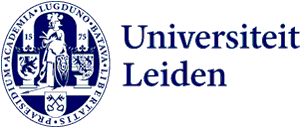
University energy campaign: ‘Warm yourself, not the world’
Sky-high energy prices and a climate that keeps getting warmer: it’s clear that we have to turn down the heat. Sustainability Day on 10 October will mark the start of our five-month Energy Campaign and we’ll be making the switch. Sustainability Coordinators Aranka Virágh (Real Estate) and Marlies Nijemeisland (Administration and Central Services) tell us about the campaign.
The thermostat at the University will now be set to 19 degrees max – something we’ll all notice. We need to be less reliant on Russian gas and to reduce our impact on the environment. The University will also have to do its bit. We have achieved high levels of prosperity: the lights are always on and rooms at a comfortable temperature. W can’t carry on like this, though, and will have to surrender some of this prosperity.
On the one hand, the Energy Campaign is about the practical side of things: turning down the thermostat, closing windows and doors, and remembering to turn off the lights. On the other hand, it is about raising student and staff awareness of the need to save energy, and we hope that everyone will get behind this. The Energy Campaign therefore ties in perfectly with the University’s Sustainability Vision 2030.
Warm sweaters and trousers
‘Warm yourself, not the world,’ is how Aranka aptly puts it. ‘There’s lots you can do to keep warm. One very simple thing is to wear layers, warm sweaters and trousers, but you can also take the stairs or get your coffee from further away in the building. Then you warm up your body and it also gets you moving!’
Staff understand this in theory but find it difficult to translate sustainability to their everyday work. Students from the Knowledge Centre Psychology and Economic Behaviour are currently researching how staff can save energy at work. They are analysing people’s behaviour: what do and don’t they do? Marlies: ‘It’s great that our own students are looking in to this. And the results may give us some pointers on which resources we can use and how to achieve long-lasting behaviour changes.’
Huggle Hoodies
A lot is being asked of students and staff, but the University is trying to help. ‘We obviously want students and staff to keep on coming to the University,’ Aranka explains. ‘That’s why we have a number of special offers and competitions running, to encourage these behaviour changes. You can get a 25% discount on a University sweatshirt from the University Shop and can win a ‘Huggle Hoodie’, a big fleece hoodie, with your energy-saving ideas. I’m also discussing discounts on coffee from the canteens. Then you kill two birds with one stone: you warm up your body by walking to the canteen and the hot coffee also warms you up.’
Hidden energy consumers
It’s not always obvious where the biggest energy consumers are. At Leiden University 70% per cent of the energy is used by the Faculty of Science. This is mainly by labs and ventilation requirements. Aranka: ‘We want to see if we stand to make any more gains here. For instance with freezers: does a sample really need to be stored at -80 degrees or would -70 suffice? And can specialist equipment, which is on 24/7, be shared more?’
Another source of energy consumption is data traffic and storage. Marlies: ‘We often store our e-mails for eternity but the data centres that store these also need electricity. People are often unaware of this but being more efficient with this could make a significant difference.’
Looking to the future
If it were up to Marlies and Aranka, this change would be lasting. Aranka: ‘It would be fantastic if sustainability was included by default in plans, in research for example. Every time a research plan is made this should be taken into account.’ Marlies adds: ‘During Covid started flying less. Now the end of the pandemic is in sight the dip in flight numbers seems to have been a temporary one. People are flying en masse once again. I hope that the energy crisis will be the stimulus to take a good look at our operational management and to achieve innovation and sustainability across the board. Not just in the short term but in the longer term too.’
Text: Nynke Smits
Photo: Kira auf der Heide via Unsplash
